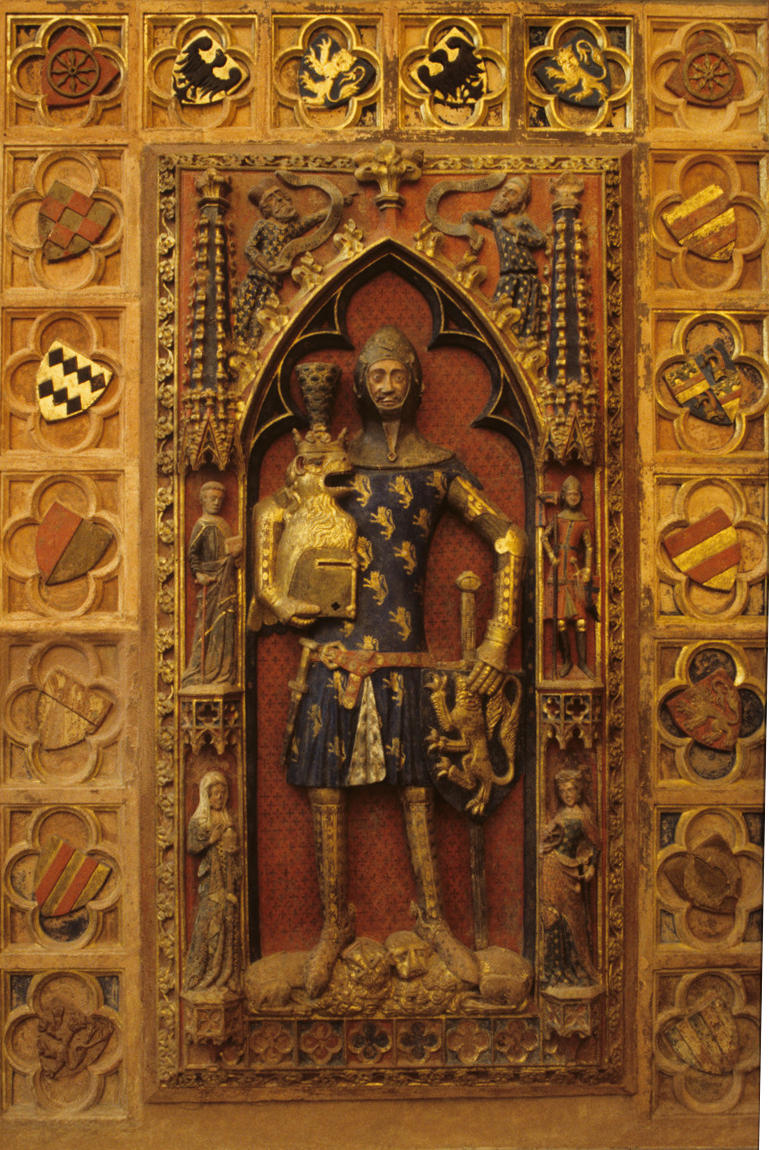Create an Amazon Wedding Registry

Find the perfect fit with Amazon Prime. Try Before You Buy.
Effigy of Günther von Schwarzburg, German Knight, 1352AD. Sankt Bartholomäus, Frankfurt am Main.

A detail of the Effigy of Günther von Schwarzburg, German Knight, 1352AD. Sankt Bartholomäus, Frankfurt am Main.
Grabplatte der Tumba des Günther von Schwarzburg (+1349), Gegenkönig Karls IV., mitteldeutsch?, 1352, Frankfurt (Main), Stifts- und Pfarrkirche Sankt Bartholomäus —
Foto Marburg, Foto: Rödel, Volker;
Aufnahme-Nr. LAC 49.231;; (color); Aufn.-Datum: 1995;
Source: bildindex
Referenced in 105. German Knight, Günther von Schwarzburg, d.1349 in Armies of the Middle Ages, Volume 2 by Ian Heath:
His arms and legs are protected by leather strengthened with metal splints and rivets, a popular form of armour in Germany from the late-13th century until c.1380.
His foot-armour is similarly of rivet-reinforced leather, Claude Blair observing that the Germans ‘apparently had no great liking’ for mail sabatons.
Although he carries a heaume (with a crest that is unlikely to have been worn in action) the helmet he actually wears is a bascinet à brèteche, popular in Germany and Italy c.1340-70.
This was a type of helmet in which the mail hood had an in-built nasal which could be hooked up to 2 studs on the brow of the helmet
A form of visor, usually referred to today by its modern name of Klappvisier, evolved from this in Germany c.1360;
this was hinged by the middle of its top edge to a vertical bar similarly attached by 2 studs on the brow of the helmet.
105. German Knight, Günther von Schwarzburg d.1349 in Armies of the Middle Ages, Volume 2 by Ian Heath, based on the Effigy of Günther von Schwarzburg, German Knight, 1352AD. Sankt Bartholomäus, Frankfurt.
See also Sleeping Guards at the Sepulcre, portrayed as 14th century soldiers, Breisgau Cathedral, Freiburg, Germany, 1350AD.
Effigy of Walther Bopfingen, German Knight, d.1359. St. Blasius.
Other 14th Century Illustrations of Costume and Soldiers

